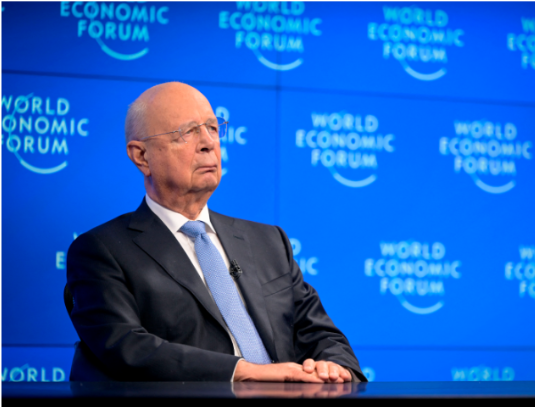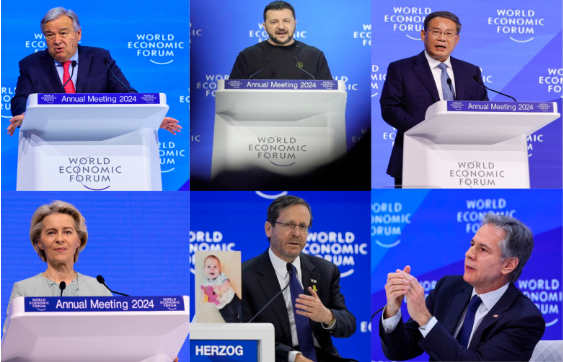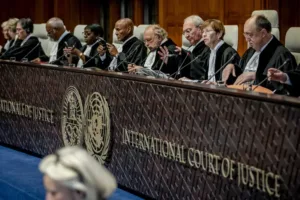Every January, while many people are still ringing in the New Year, heads of state, business leaders, and civil society groups alike descend upon the Swiss municipality of Davos for the annual meeting of the World Economic Forum (WEF), a non-governmental organisation that aims to foster public-private sector cooperation. The origins of the summit can be traced back to the early 1970s, when a clan of European business leaders convened in the ski town to address issues in the private sector at the time, later adapting their focus to world events, namely the collapse of Bretton Woods and the Fourth Arab-Israeli War, which led to the invitation of political leaders to Davos for the first time in 1974. Led by now-Chairman Klaus Schwab, the forum has taken place annually since then, growing in size and scope with each passing year.

This year’s conference, which took place from the 15th to the 19th of January, was attended by “nearly 3,000 leaders from government, business and civil society,” their nationalities spanning “more than 125 countries.” The guest list included, among others: António Guterres, Secretary-General of the United Nations; Volodymyr Zelenskyy, President of Ukraine; Li Qiang, Premier of the People’s Republic of China; Ursula von der Leyen, President of the European Commission; Isaac Herzog, President of Israel; and Antony Blinken, United States Secretary of State.
The summit’s main theme was ‘Rebuilding Trust’ and “aimed to provide a crucial space to focus on the fundamental principles (of) transparency, consistency, and accountability.” The scope of the addresses and talks, however, were incredibly varied – Premier Li boasted continued Chinese economic growth, claiming that “China’s economy (…) will continue to provide a strong impetus for the world economy;” President Zelenskyy’s address sought to put the war in Ukraine back in the spotlight, stating that, “Anyone [that] thinks this is only about us, this is only about Ukraine, they are fundamentally mistaken;” Secretary-General Guterres stressed the importance of multilateralism, arguing that “Geopolitical divides are preventing us from coming together around global solutions for global challenges;” and President Herzog used his platform to demand the release of Israeli hostages currently held captive by Hamas, and called on the international community to provide more support for Israel.

Along with the familiar faces, there were some new ones too, chief among them Javier Milei, who was elected as President of Argentina in November of last year. While Davos attendees usually travel to and from the conference by private jets, which “quadrupled emissions” in 2022, Milei bucked the trend, making the over-11,000km trip across the Atlantic in economy on a Lufthansa Boeing 747-8, a move that reportedly saved his government “$392,000,” as he aimed to show a “commitment to austerity measures.” After walking the walk, it can almost certainly be said that Milei talked the talk – the Argentine President opened his address by saying, “The Western World is in danger (…) because those who are supposed to have to defend the values of the West are co-opted by a vision of the world that inexorably leads to socialism and thereby to poverty.” Milei’s scathing rebuke of the conference is consistent with a number of recurring criticisms of the WEF, many of which are considered to be conspiracy theories.
The main one is centred around the Forum’s controversial ‘Great Reset’ initiative, which was designed in response to the outbreak of the COVID-19 pandemic, in June 2020. According to the WEF, the Great Reset is a “commitment to jointly and urgently build the foundations of our economic and social system for a more fair, sustainable and resilient future” which requires “a new social contract (…) where societal progress does not fall behind economic development”. This proclamation sparked what some refer to as a “conspiracy smoothie,” an amalgamation of anti-vaccination agendas and pandemic denialism, population control conspiracy theories, as well as the principles of reactionary populism which include a scaling-back of the centralized state and an overall distrust of what are referred to as the ‘ruling class’. The conspiracy theory has gained traction among conservative circles in the U.S and internationally following amplification from right-wing figures such as Ben Shapiro and Tucker Carlson, as well as actor-turned-conspiracy theorist Russell Brand. The three men centered their focus around the belief that the COVID-19 lockdowns were being used by the WEF as a means to implement the Great Reset, which was hypothesized to be leading society toward a centralized, totalitarian state.
The WEF has struggled to brand its message at times, receiving pushback for statements such as “You’ll own nothing. And You’ll be happy” in a video entitled ‘8 Predictions for the World in 2030’. Proclamations like these have only given more impetus to conspiracy theories, which often centre around the idea that the WEF is a leading participant in a ‘shadowy cabal’ of international actors that are attempting to implement a ‘New World Order’ through a top-to-bottom reorganisation of the global economy.

Despite this flurry of conspiracy theories, the WEF has continued unfazed, instead focusing on its mission –addressing the most significant problems affecting the world today. Some of the organization’s key takeaways from this year’s conference were that “leaders need to pull together” – emphasizing the importance of cooperation in a divided world– “humans are going to have better tools” due to the advent and development of AI language models & automated technology, and, perhaps most notably, that “urgency is our only saviour” in the ongoing fight against the “existential climate crisis.” Despite a gloomy sense of acknowledgement that the world is not in a great place, the overall message from Davos seems to be that a future of sunnier skies is very much in our hands.




